All photos by Benjamin Tan for RICE Media
Kuok Meng Ru may be relatively low profile, but you might have heard of his venture, BandLab. And he’s making moves in music and tech that most of us wouldn’t comprehend.
In his pristine office—on the second level of a renovated pearl-white conservation home along Neil Road—Meng Ru deliberates over the flights he’s taking in the weeks ahead. But we’re not here to talk about his travel itinerary for the week (which, by the way, included Tokyo, Bangkok and Los Angeles). Meng Ru is here to talk shop.
The Malaysia-born, Singapore-based CEO runs Caldecott Music Group (CMG), which unites his three ventures: BandLab Technologies, NME Networks, and Vista Musical Instruments. He’s also the son of a palm oil billionaire—and the grand-nephew of Malaysia’s richest man, Robert Kuok.
When it comes to music, Meng Ru has his fingers in so many places. BandLab—which offers aspiring musicians an online platform to compose, record, and share music—has been his baby from conception. On the other hand, many of his other companies were high-profile acquisitions, including music retail giant Swee Lee and music magazine NME.
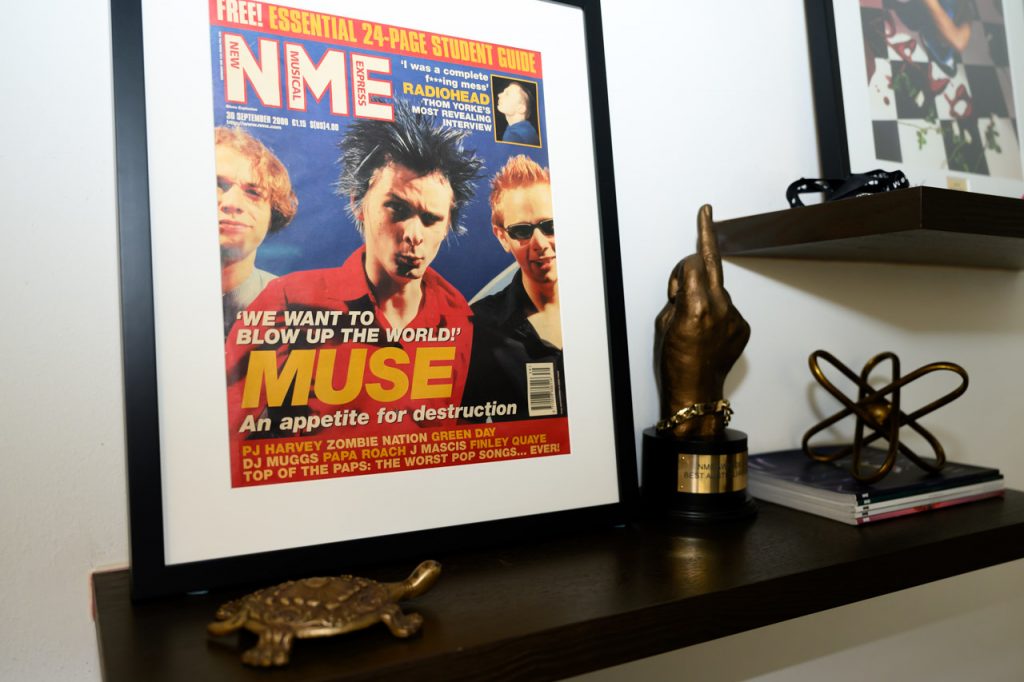
You could say Meng Ru is the only music mogul making big moves in Singapore right now (let’s not talk about the other one). Recently, he’s crossed two major milestones: one, marking 100 million users on BandLab, and two, opening a new Swee Lee store in Clarke Quay. And that’s just in the last few months.
Over time, BandLab has helped propel the careers of up-and-comers like major-label US artists d4vd, Luh Tyler, Wisp, Diego Gonzalez and many more, who collectively have generated billions of plays across Spotify. With Swee Lee, he turned a trusty local brand into a powerhouse—strengthening its regional distribution network through e-commerce, expanding its offerings (including events and F&B), and launching several outlets across Singapore.
Its flagship outlet at The Star Vista plays host to a music school, Swee Lee Music Academy. The latest one at Clarke Quay is set to host a packed schedule of artist workshops and performances open to the public.
Meng Ru should be buzzing. But in our conversation, he’s evidently taking things slow after flying across the world for meetings. And returning home for, well, more meetings.
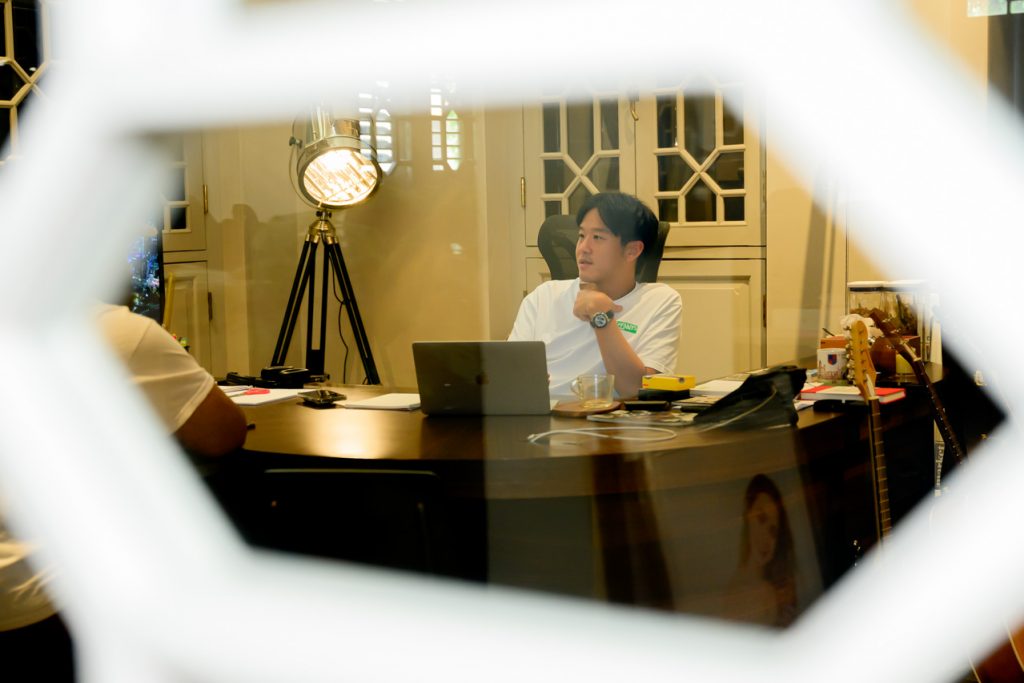
I wanted to talk to Meng Ru because, aside from his prolific ventures, he’s quite a private guy.
If you don’t see him talking at closed-door industry panels or being interviewed by Forbes, you won’t hear a peep from him. He’s making big moves, so I wanted to learn more about his big ideas, which are backed by big money.
More importantly, I wanted to see if I could find a more human, relatable Meng Ru underneath his family prestige. That’s not exactly what I got.
In our meeting, he’s deliberate with his responses. He sidesteps most questions about his personal life, or his ventures outside of Caldecott (not least, acquiring defunct American media company Gawker, which shuttered after a tumultuous court battle against retired pro wrestler Hulk Hogan).
On occasion, he oscillates away from his media-trained answers and into more stammered, off-the-cuff responses. These moments are brief, but they allow for more levity that would otherwise be eclipsed by a lot of music industry talk.
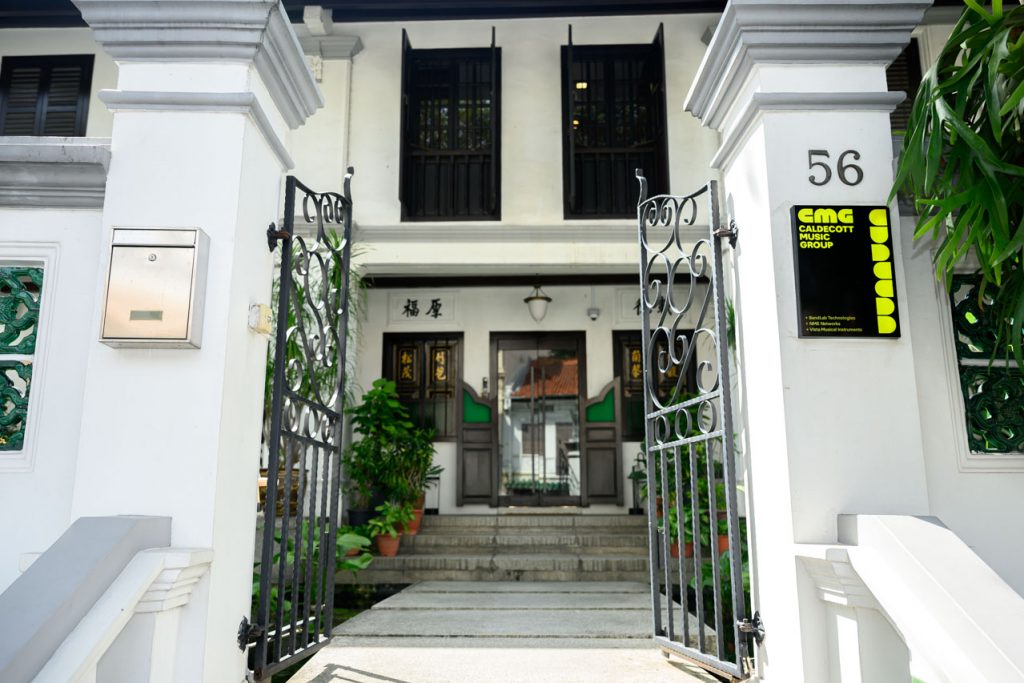
He was also my boss. Sort of. In the past, I contributed to NME as a music writer, and he wouldn’t let me forget it. “Thanks for all the work you’ve done for us!” he tells me as he waves goodbye after our conversation.
It’s weird to interview someone who once cut your cheques. So, with this thought unwelcome in my mind, I would have my own moments where I tripped over myself—like asking where his blasé, Americanised accent comes from (a question you shouldn’t ask anyone) and how his National Service experience was like (how could I forget he’s Malaysian?!).
My own shortcomings made me more sympathetic to a billionaire, which is a sentence I never thought I’d write.
This interview was edited and condensed for clarity.
RICE: With all your ventures, what was the aim of establishing Caldecott Music Group?
Kuok Meng Ru: The big thing for us is the idea of ‘one + one = three’, making sure that there is a relationship between all the different parts of the business and how they interact. The whole point of the group is that the businesses have matured to the point where they need that day-to-day focus, and everyone in the team has to work 100 percent on different parts of the business.
Despite having all these businesses you now run, is it fair to say BandLab is still your baby?
Well, everything ultimately becomes your baby when you spend enough time with it. I’d like to think there’s some special connection because I co-founded it. But, to be honest with you, there’s no real preference there. It just takes up a lot more of my time.
I think there’s the reality that—using the baby analogy—they’ve all grown up. BandLab has been around for nine years, and it’s now the most important platform in terms of the music industry for the next generation of artists. But BandLab has been cooking for nine years.
They’re all growing up, and they start to stand on their own two feet. Different kinds of pressure grow as the business grows.
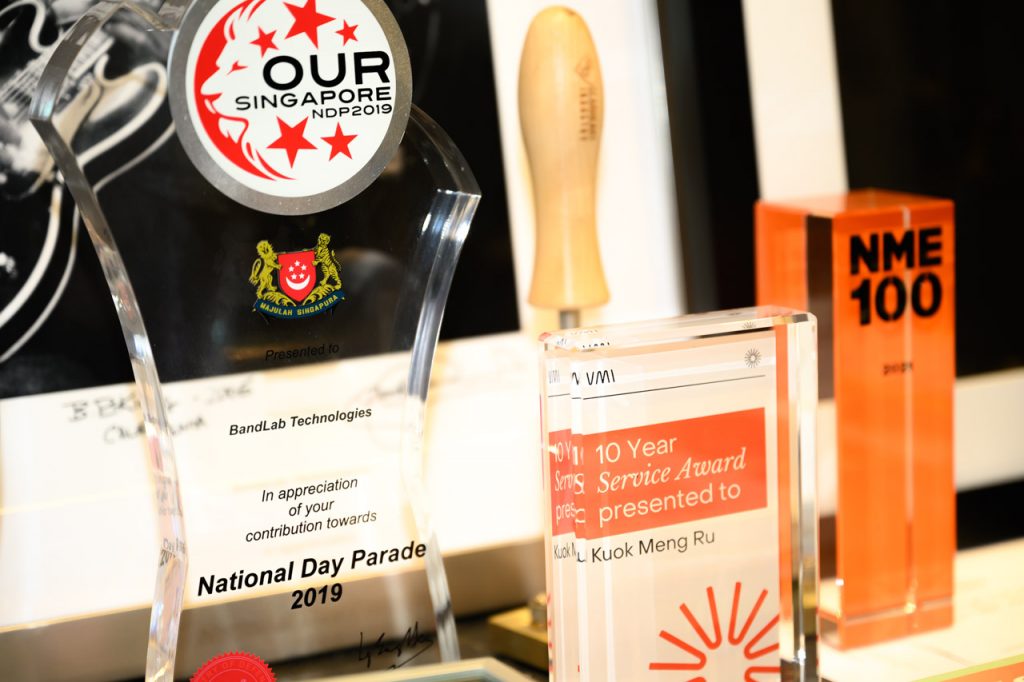
You run NME, which has been a long-running presence in the UK. How have things changed for the brand since it’s now headquartered in Singapore?
The UK is already not our biggest market. They’re a meaningful market, and the brand has always been there. But, in terms of us being a ‘global citizen’, that’s already been the case. When we set up NME Australia and NME Asia, that was a stepping stone in our long-term plan of making it a global brand. We’ve completely changed the site now. There’s no more NME Asia, no more NME Australia. It’s just a pure master brand NME.
So, Caldecott houses NME, which provides music coverage. Then, there’s BandLab, which allows for this ecosystem of aspiring artists to create and share music. Because both brands exist under this same umbrella, would a BandLab artist have their chances increased of getting covered because of the connection between BandLab and NME?
I would say that all artists have an equal chance. But it’s also, like, how do you differentiate?
I would say that, right now, because of the rise of BandLab—in terms of a global movement—there is a higher propensity for people that are being covered or signed because they’re BandLab artists around the world. But I wouldn’t say it’s specific to our BandLab ecosystem.
It’s more because our whole job is also focused on listening to what’s going on. We’re always looking out for trends. We’re releasing sound packs on BandLab, but we also have to pay attention to the trends that are going on in, say, Mexico or Brazil.
In general, as an organisation, an individual has more of a chance to be listened to by us than other places, just because we have a bigger team.
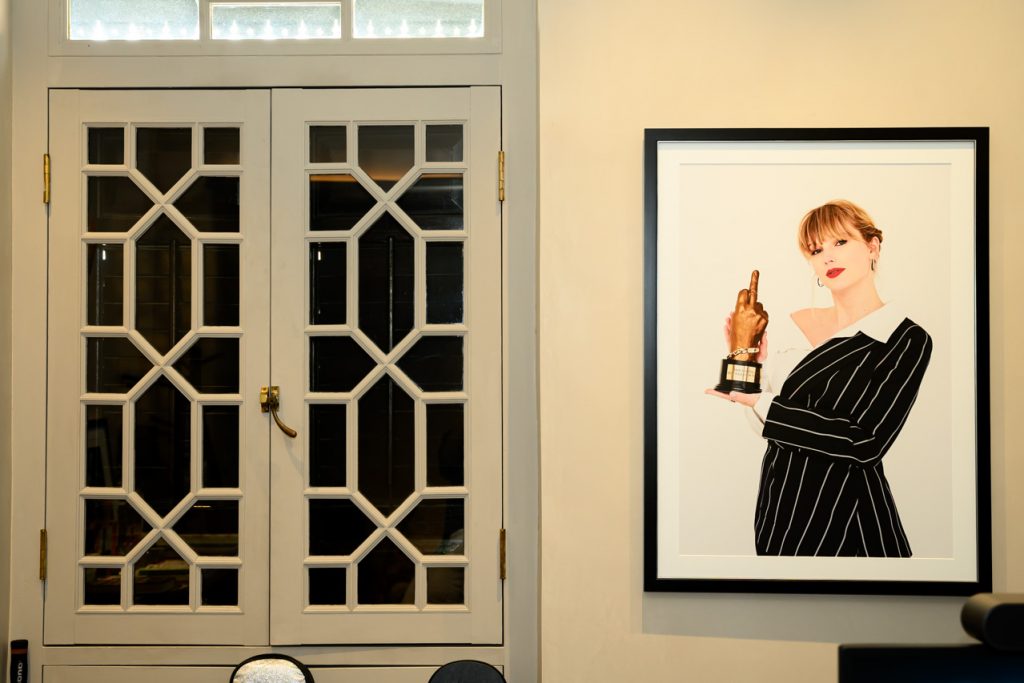
CMG has its three strongholds. Over time, as well, there have been other acquisitions. And I believe, last November, there was Gawker as well.
No, no, no. That has nothing to do with CMG. I’d acquired Gawker last year, along with the IPs associated with it.
So that’s something entirely separate from CMG?
Entirely separate, yes.
Is that something you’re still working on right now?
I can’t—I can’t say anything about it.
Is there a lot of red tape there?
No, no, no. It’s just not related to our business.
Over time, though, there have been acquisitions that did not come to fruition.
We’ve done quite a lot of mergers and acquisitions in the past. We’ve done a variety of things. We’ve started businesses from zero, we’ve acquired businesses. I got into the industry by acquiring Swee Lee, a local company. And we were joint owners of Rolling Stone from 2016 to 2019.
But yes, we’ve looked at far more deals than the ones we’ve actually done. I would say that our bar for any deal is always pretty high. Whether we acquire an ongoing business; whether we start something from zero; whether we take a trademark and bring it back to life, it has to fit into our strategic vision.
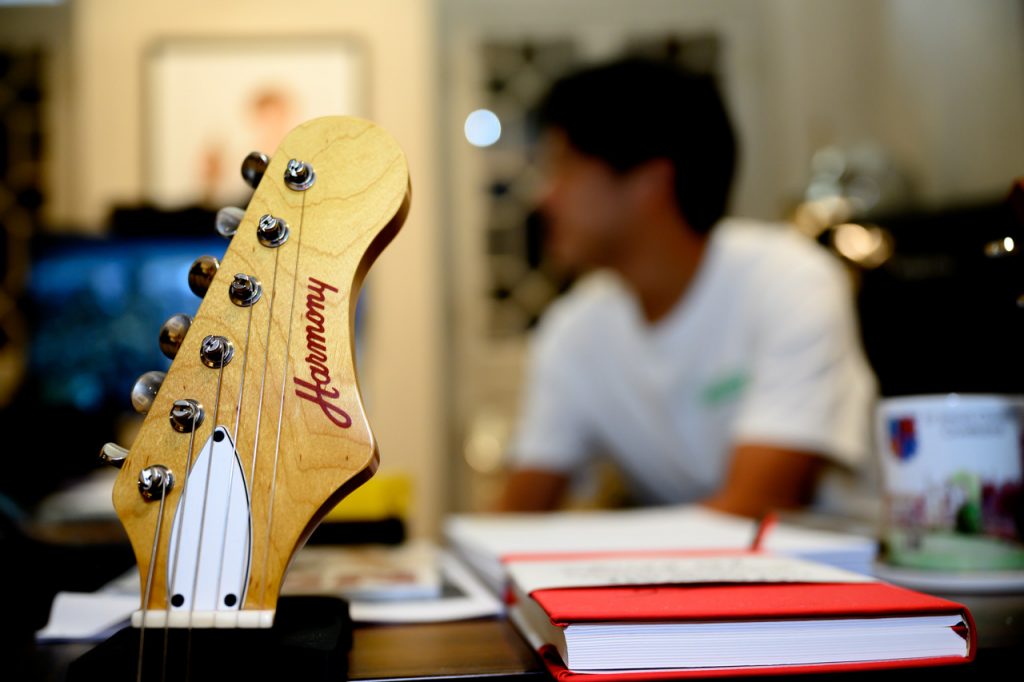
When it comes to managing or working with people who are overseas, are there any cultural barriers?
No, I think I’ve been, you know— I’ve been very lucky on a personal basis. I grew up in Singapore, but then I was overseas for many, many years. Most of my working life has been dealing with people from the US.
On a personal basis, I’m comfortable anywhere and everywhere. Culturally, because I personally spend time in many of these places, those cultural differences don’t feel as foreign as, for example, if I were to start doing business in places like Korea or India. It’s a different kind of way of doing business there.
Just speaking to you as well—it’s my first time hearing you talk—I don’t really hear a Singaporean accent.
(laughs)
Where was that cultivated from? Was that from your time studying overseas?
Honestly, I don’t know man (laughs). I think I need to figure it out.
At some point, it was more British. I was in the UK for 12 to 13 years. My formative years were in international schools in Singapore. So I was always around a more British environment, and most of my working life was spent with Americans. The different words that pop into my vocabulary—like the different intonations—can make it that I can say ee-ther or eye-ther, A-merry-kuhn or A-murry-kuhn.
Basically, a potpourri of different accents?
In some ways, yeah. It depends on the things you do, right? On a personal basis, I’ve always been someone with a creative focus. From a musician’s perspective, I’m someone who enjoys different genres. You always take a little bit of yourself and merge it with different things.
That’s something unique, I think, to our generation because we are inundated with so much content from around the world. There is also a sense of, like, what culture are we really? Like in Singapore, where there are so many different cultures that are native and natural. That’s one of the beautiful things about Singapore—you don’t really feel a monoculture. I think they call it, like, third, fourth, fifth culture now or whatever.
How would you describe it in your own words?
Just confused. (laughs)
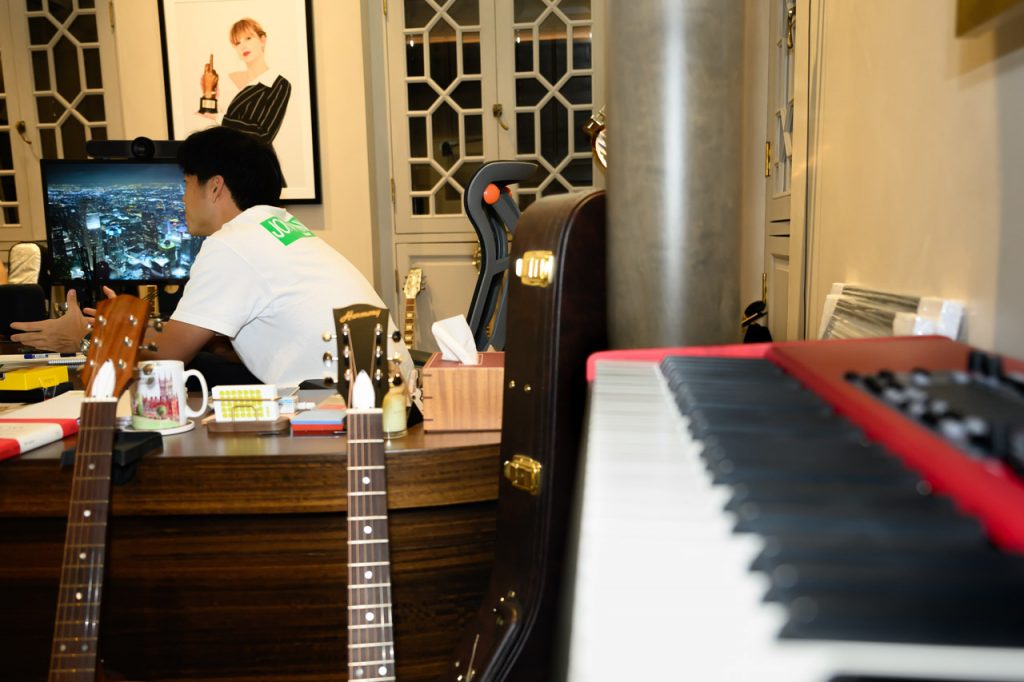
In Singapore, there’s also the clash of passion and pragmatism for working adults. Is this something you’ve talked about with other people here?
It’s something I’ve been asked, like, advice for people starting a business. There’s the question of ‘What should I do?’ or ‘How should I think about it?’. Every part of life needs a certain amount of pragmatism, right? That’s really important. It depends on what you’re willing to give and sacrifice for anything.
My usual advice to those questions is that you’ve got to figure out what works for you, your lifestyle, and your ability to commit. I think every industry has a different kind of pragmatism that you need. The beautiful thing about the internet today is that anyone can build a career. If you can build that connection with people, you can actually do incredibly well just by yourself. But there’s always a need to be pragmatic about what you put out, and who your audience is.
Based on your brands, it seems like community is an important element for you. Is this something you realised over the course of your life?
I went to a school in the UK at the age of 10, basically moving away from home. I was living there by myself, and I only had my school friends around me in a dormitory. My family growing up was less of a ‘traditional’ family unit. It was really a community of my peers.
That community, for me, was the 12 to 14 guys I grew up with. In the UK, especially in that collegiate atmosphere, that was a big part of my life from very early on.
So, that sense of ‘everything you do doesn’t just have an impact on yourself, it affects others’ was something I lived and breathed then. Like, if I snored at night, it’s gonna keep someone up.
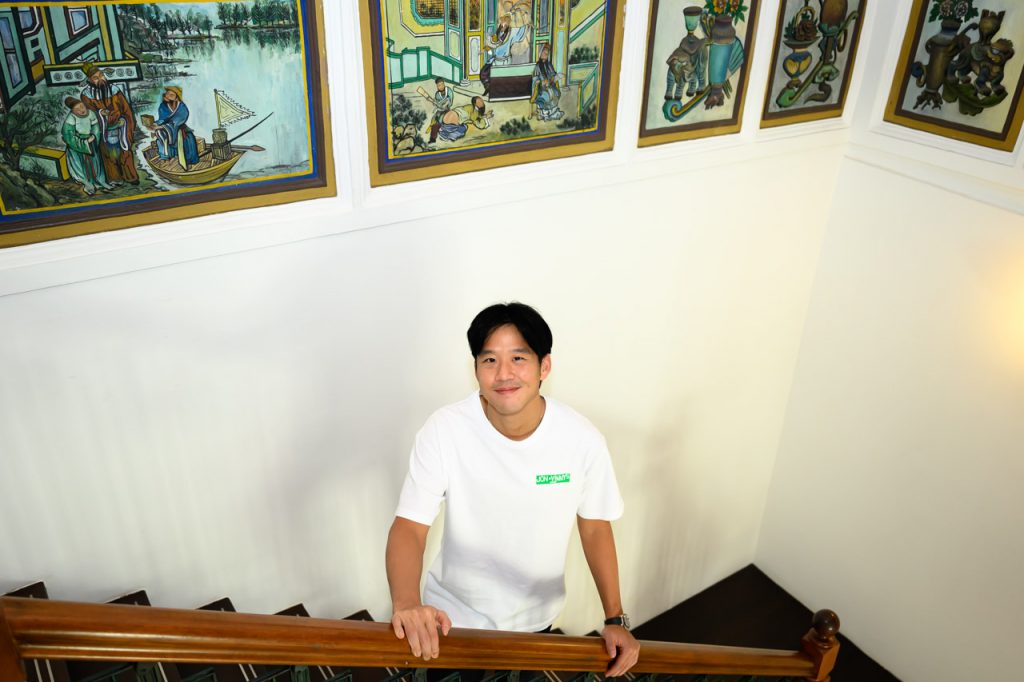
Did that continue when you enlisted?
Oh, no, I’m Malaysian, so I didn’t serve NS.
Speaking about your family, everyone knows who your family is, and where you come from. Still, being a business owner, what does risk mean to you?
Risk is different to everybody, right? The risk that one takes is all relative. On a personal basis, some of the risks that one has to consider is the reputational risk, especially being from Asia. Whether what we do is successful or not, it’s something I had to reconcile with—the idea that, “Okay, I’ll do it. I’ll have to do press interviews.” I refused to do press at the beginning, but I had to consider it later on. For me, it’s like, if you do something, you need to do it all out.
Last year, I was lucky to be able to choose not to be on social media. I found that extremely rewarding, and I enjoy it. It’s something I don’t miss whatsoever. But, obviously, I wouldn’t recommend that to everybody when others have their own needs, especially when it comes to work.
For better or worse, some things will pay off. There are pros and cons to taking risks. It’s an important concept to me, but it’s now more of a responsibility.
How so?
It’s a personal responsibility to yourself. When you’re running a business and making decisions, there are two things you’ve always got to deal with: “Just because you can, doesn’t mean you should,” and “If you can’t, who else can?”. You’ve just got to make sure you’re making the right decisions.
Do you think you’ve gotten better at talking to the press? I know this is a bit of a meta question.
I feel like I’m much worse. (laughs) Like, I’m getting worse every single day. I think it’s the Dunning-Kruger effect or something, where you start a skill and think, ‘Oh, I think I’m okay with this’. And then, your expectations versus your reality are different.
To answer the question, no, I think I’m getting worse. (laughs)
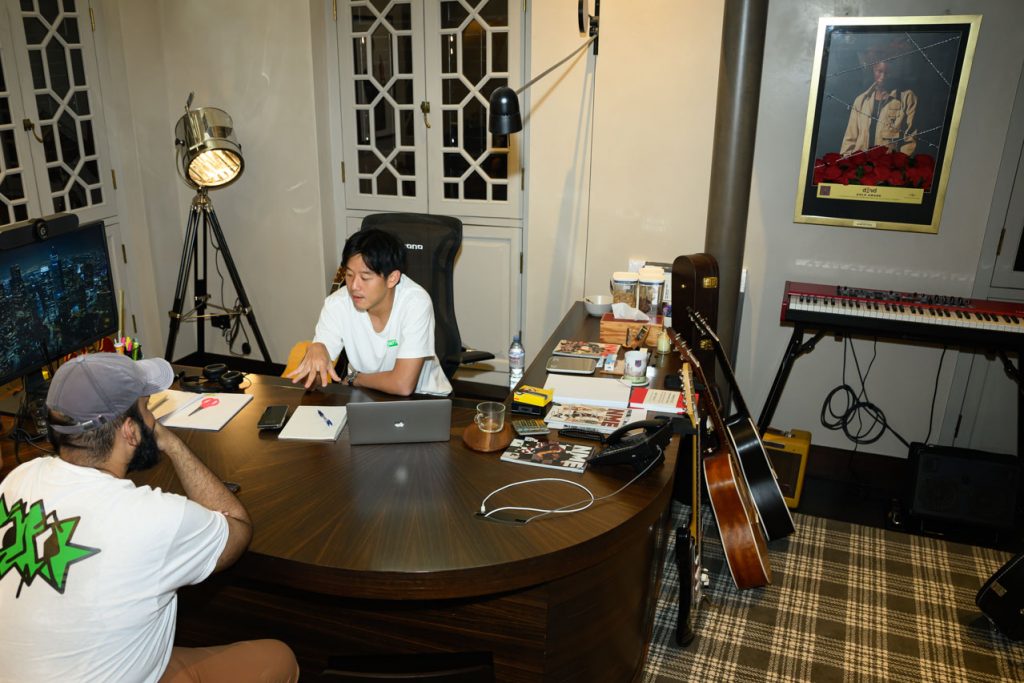
Is it something you still think about? Like how you carry yourself to the public.
That’s a decision I had to make very early on. If you’re thinking too much about that or if it mattered that much to me, I wouldn’t have put myself out there to do any interviews at all. My general assumption is that, with anything, 50 to 60 percent of people won’t like what you have to say.
I had to wrestle with that very early on. And today, I’m not really that bothered by whatever is said (laughs). Or maybe that’s why I’m not on social media. (laughs)
On a personal level, what are you grateful for?
I think… [I’m grateful for] still being around and being excited by what we do. That’s something I’m incredibly grateful for. The time that has passed—and we’re still here, 12 years on—is something that reminds me that I’m still committed to something and pushing into the future.
And what about the people around you?
With the passion of our entire team, we’re very lucky. My senior members of the team have been with me since the very beginning. They’ve committed their lives and careers to what we’re building together. We have a team that realises that, look, nothing is ever perfect, but there are always things we can do better. We figure out how we can improve beyond our comfort zone.
What is one thing you think you can do better?
Uh, press interviews? (laughs)






